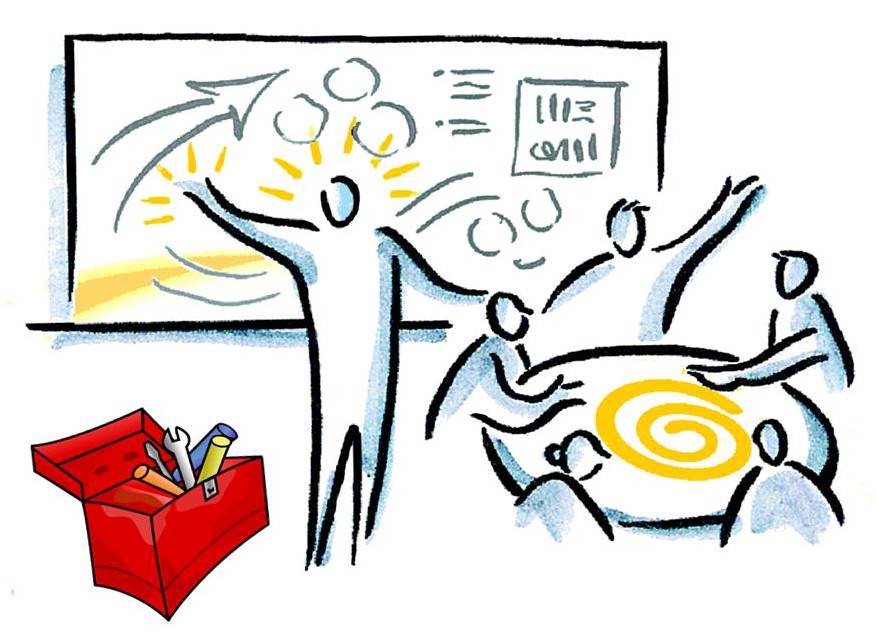Are You Ready to Become an Activist Philanthropist?
There is an undeniable extractive nature to philanthropy: I’ll give you a grant, if you deliver me detailed proposals and reports proving that you are worthy. And, as put by one program officer at the Open Society Foundations, “There’s a deep distrust of philanthropy, we are a necessary evil for many people.” As part of an effort to learn from our own practice at Open Society Foundations, we spoke confidentially to a group of program officers about what is working and what isn’t—and how we could shift away from practices that feel extractive.
There are entrenched power problems embedded in our practice, processes, and structures. However, as philanthropists, we also have enormous freedom to dismantle these very practices, processes, and structures since they are of our own making. Participatory grantmaking is one way in which we can change the conversation with our partners and allies and shift power in philanthropy. The act of philanthropists transferring power and control over funds to the communities they seek to serve is an unapologetic form of social activism and can lead the field to innovate with bigger and bolder ideas.
A Learning Collaborative
In 2017, Open Society Foundations (OSF) established a learning collaboration between the Open Society Foundations’ Economic Justice Programme (EJP) and the Institute of Development Studies (IDS) to understand and move toward intentional participatory practice. The collaboration first established conceptual grounding, building on the long history of learning from participation in development to produce support tools such as a Primer on Participation in Economic Advancement and guidance for effective participation in programming.
However, the biggest barriers to moving toward a more radical participatory practice in philanthropy and really shift power are not a lack of tools. It is our mindsets, identities, and learned behavior as grantmakers that can get in the way. We must become “activist philanthropists” to truly enable participatory grantmaking to thrive.
The learning collaboration enabled conversations about these complex dimensions of participatory practice which we at Open Society Foundations have been exploring through multiple program areas. So, what have we learned about how this budding “activist philanthropist” practice works?
Understanding the Enabling Factors
To get started, it’s important to understand that as an activist philanthropist, one must be a reflective grantmaker who seeks to make positive change within their institution. One must also believe that fundamentally, communities thrive when they have the power. In order to be reflective, one needs space, accountability, and a willingness to take risks. Making decisions in a collective, rather than in a silo increases accountability and may help program officers to take more risks and support actions that seek to shift power to the community level. Forming allies with peer foundations is one other strategy to earn internal buy-in as risk is often shared when another donor comes on board.
Another way to get internal buy-in is by being able to articulate the benefits to help justify making a mindset shift. Among all the potential benefits that we learned about from activist philanthropists, there was most enthusiasm around how participatory funds increase the proximity of philanthropists to the real issues they are aiming to address. To be an activist philanthropist, one must go beyond the usual donor-grantee relationship and lean into substantive matters and deal with contextual challenges with understanding and a willingness to let the community guide the solutions. The voice of a participatory fund can be extremely powerful, both in signaling to the community that it can direct its own goals and in the representative nature of the fund. It’s a voice a foundation can never have. When funders and activists work more closely together, then funders are much better positioned to be responsive and supportive of bold, new ideas emerging within the field.
Activist philanthropists must also embrace letting go of control and trusting the community. Often, funders can change their strategy and leave their grantees to grapple with filling a new funding gap, but if structured correctly, a participatory fund can act as a kind of insurance policy since community members have a long-term stake in the work. Further, rather than imposing one’s individual agenda on the field, participatory funds can drive efficiency among funders, reduce duplication and reduce negative impacts on the community, such as repeated requests for reports.
To Be Participatory or Not to Be?
Activist philanthropists also know when and why to make this shift in practice. Participatory grantmaking might not be the right solution for everyone, but you can be an activist philanthropist anyway by recognizing when it is or isn’t an effective option.
And even if it is an option, there are some challenges that make effectively engaging in the practice complex. For example, one program officer questioned whether a participatory fund they were involved in was actually empowering the community or if it was empowering internationally recognized activists who are often already visible—a common issue in ensuring representation through participatory processes. There are also potential concerns of conflict of interest as many of the leading activists end up on decision-making committees, who often lead large organizations that end up getting selected for funding.
Establishing a participatory fund also requires one to consider its sustainability. Funds without a renewal system may operate with a one-year support cycle, and then leave grantees and those involved in a state of uncertainty.
From our learning collaborative, we also found that participatory funds tend to be less effective when the focus is regional, rather than national or local. When there is a regional focus, some countries or localities tend to be forgotten if they are not represented on the decision-making committee.
These issues are much like the ”elite capture” dilemma that has been one of the main critiques of participation in development practice generally—the issue of representation is not a simple one to resolve. It signals a need for activist philanthropists to take seriously and engage directly with power asymmetries—not just between the grantmaker and the grantee, but also between stakeholders in the field. To do this well, there needs to be contextual understanding of the field and stakeholders within it in order to design the central processes of the fund accordingly.
Be An Activist Philanthropist
One thing is for sure, participation isn’t a grantmaking approach, it’s an attitude. You either reflect on your power, or you don’t. The creation of participatory funds within Open Society Foundations has been largely reliant on the persistence and energy of individual program officers that seek to identify ways to shift power to communities.
The OSF program officers considered themselves to be activists within philanthropy and sought to shift the deeply embedded power relations and structures. Many have first-hand experience of what it's like being part of a community with limited power and voice. OSF has increased its efforts to align hiring practices with programmatic objectives and improve staff inclusion. Philanthropy needs these people. Though we take pride in these efforts, when considering the bigger picture, there is still far more work OSF and the field at large to do to advance power and participation at the community level. It's time to ramp this up. Rather than just considering how one is embedding concern for participation in a funded project, let's think about how and why we end up funding that project in the first place, and about intentionally using our grantmaking practice as a platform for social change. The world needs more activist philanthropists.
With thanks to several OSF programs - Public Health Program, US Program, Information Program, Arab Regional Office and Open Society Initiative for Europe, that have each contributed to the shaping of funds such as FundAction, International Trans Fund, Intersex Human Rights Fund, Sex Worker Giving Circle, Red Umbrella Fund, Peer2Peer Exchange Fund, Indela Fund and Rawa Fund.





